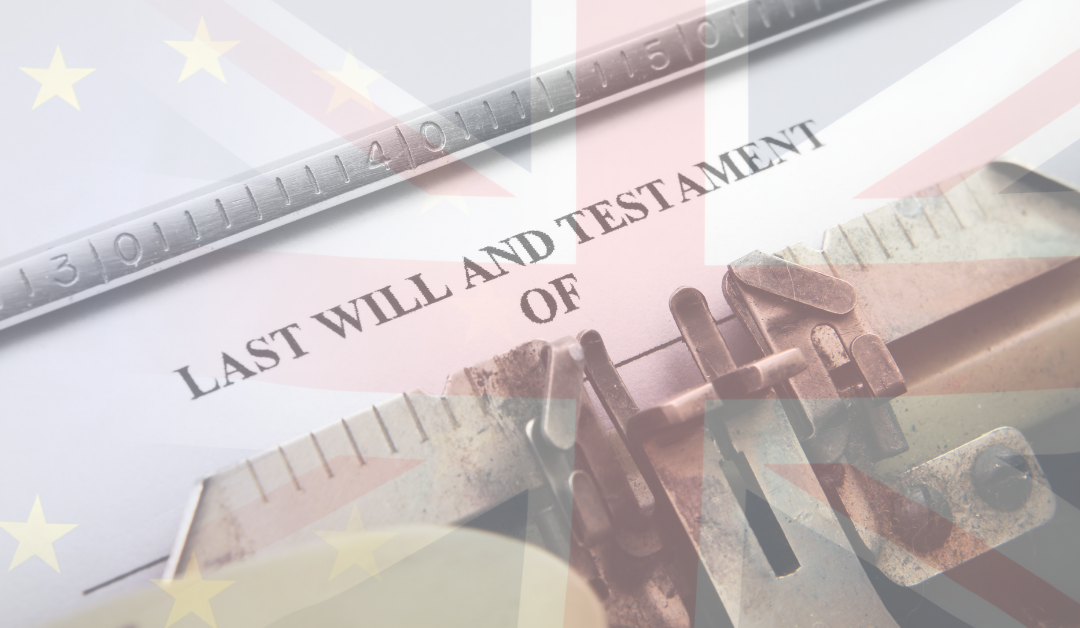How willing are you to put a Will in place?
Do I need a UK will?
Not so long ago YouGov polled that 82% of Britons aged between 18 and 50 believe it is vital to have some form of Will in place. This would seem to pose the 59% of the population who do not have a Will a valid question.
So, what’s stopping you?
At Finsbury Associates, we understand that this may be an uncomfortable topic of discussion. However, we also understand that it remains a critical and vital part of future planning and part of a holistic approach that should not be ignored. We have the expertise to make this process a lot simpler, more comfortable to understand for you and your loved ones, alleviating both the stress and potential financial burden that may arise at the worst possible time.
The old adage, we will cross that bridge when we come to it, comes to mind.
76% of people under the age of 35 are yet to write a Will. Are they too young, or is it just popular opinion that younger members of our population are just too young to write a Will?
Fewer young people are likely to own property or have considerable wealth and assets; this does not negate the importance of executing a Will earlier on in life. While you may think that discussing wealth, or even one’s own demise is an uncomfortable topic, there are valid reasons to enact a Will. In present times, as a population, we have all been exposed to the COVID-19 pandemic and its significant effect on our very existence.
Not everyone’s family situation is picture perfect; who would YOU like to have your last Rolo?
What happens if you die without a will?
Passing away without having a valid Will in place leaves you, and more specifically, your assets exposed to the Laws of Intestacy; the default rules that are followed to distribute a person’s estate upon their demise.
Where an estate is distributed under the intestacy rules, there is a clear path that must be followed as to how ones estate is distributed. This will take into account if the deceased was married/in a civil partnership at the date of death, if there are children and the value of the estate. An individual’s estate refers to assets held by that individual; assets held solely or jointly with another as a tenant in common. Assets held by the deceased as joint tenants automatically pass to the survivor and would not be affected by intestacy rules.
Simply stated, where a deceased leaves a spouse/civil partner and no children or remoter descendants, the spouse/civil partner would inherit everything. If the deceased leaves a spouse/civil partner AND had children or remoter descendants, the spouse/civil partner would inherit all jointly owned property, personal chattels and the first £270,000 of the balance absolutely in addition to a half share in any amount above £270,000 absolutely. Any children will inherit, in equal shares, the remaining half of the excess over £270,000 which would be held in trust until the age of 18.
There are often more complex considerations to be taken into account when allocating assets to parents, unmarried partners, stepchildren, or more distant relatives or friends.
In the case of a person dying intestate, without a Will in place, and with no immediate family, their estate would then pass to the Crown.
There is no guarantee that the aforementioned rules represent how the deceased would have wanted their estate to be distributed or allocated. The safest way to ensure an estate passes in accordance with your wishes, avoiding Intestacy Rules from applying, is to have a valid and current Will in place or dispose of assets before or upon death utilising various trusts or by allocating gifts.
Benjamin Franklin once asserted, “nothing in this world is certain, except for death and taxes”
Specifically Inheritance Tax, while a spouse may be eligible to receive the first £270,000 of their inheritance tax-free without a Will being in place, it is likely that any children of the deceased will be liable to a large inheritance bill on their share of the excess.
Inheritance tax is unavoidable; however, it is possible to mitigate the amount payable.
A Will allows individuals to manage their estate and remaining assets tax-efficiently and enables them to support recipients to limit their inheritance tax liability.
British Reserve
Cliché or not, Britons are a reserved people by nature. So how do you make a UK will?
The team at Finsbury Associates have the expertise and experience in assisting you with the entire Will implementation process, alleviating any anxiety or trepidation one may have. We look to open communication and provide peace of mind to both those writing Wills, and their loved ones.
Book a complimentary consultation
We offer a free service to help you draft this document and one of our advisors can guide you through the process.

